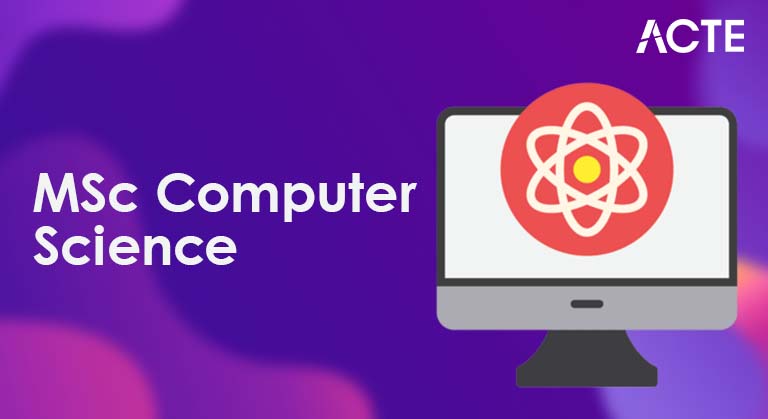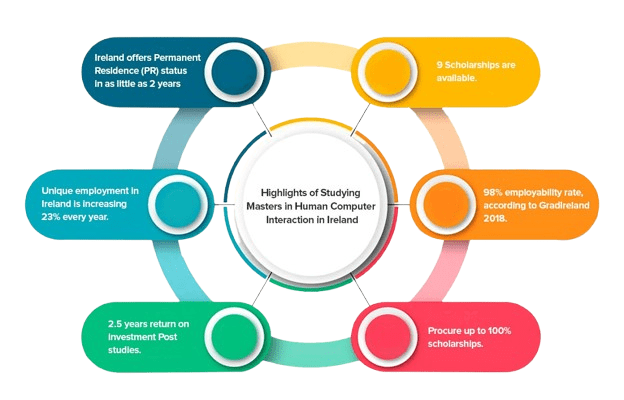
- Introduction to MSc CS
- Eligibility Criteria for MSc Computer Science
- Admission Process for MSc Computer Science
- Syllabus Overview of MSc Computer Science
- Top Colleges in India for MSc Computer Science
- Career Scope after MSc Computer Science
- Specializations Offered in MSc Computer Science
Introduction to MSc CS
The Master of Science in Computer Science (MSc CS) is a postgraduate program designed to provide advanced knowledge and skills in the field of computing and information technology. It builds upon foundational concepts acquired during undergraduate studies and offers specialized training in areas such as algorithms, software engineering, data science, artificial intelligence, cybersecurity, and network systems. This program emphasizes both theoretical understanding and practical application, preparing students for careers in research, academia, and the tech industry. Through a combination of coursework, projects, and sometimes a thesis, students gain the analytical and problem-solving abilities needed to tackle complex computing challenges. Many institutions also encourage students to complement their technical expertise with PMP training giving them the project management edge needed to lead tech teams and execute large-scale IT initiatives like a pro. The MSc CS program fosters innovation and critical thinking, pushing learners to explore new technologies and develop cutting-edge solutions. With the rapid evolution of technology and its integration into virtually every sector, a master’s degree in computer science opens doors to high-demand roles such as software developer, data analyst, systems architect, machine learning engineer, and more. Furthermore, it provides a strong foundation for those interested in pursuing doctoral studies. Overall, the MSc CS equips graduates with the technical proficiency, research capability, and strategic insight to excel in today’s fast-paced, technology-driven world.
To Explore PMP in Depth, Check Out Our Comprehensive PMP Certification Training To Gain Insights From Our Experts!
Eligibility Criteria for MSc Computer Science
- Educational Qualification: A Bachelor’s degree in Computer Science, Information Technology, or a related field from a recognized institution. Graduates with degrees in engineering or mathematics may also be considered in some cases.
- Minimum Marks: Candidates typically need to have a minimum of 50% to 60% marks (or equivalent CGPA) in their undergraduate program to qualify for the MSc Computer Science Course. This requirement can vary based on the institution.
- Mathematics Proficiency: A solid understanding of mathematics is essential. Candidates must have studied mathematics at the undergraduate level, with a focus on topics like discrete mathematics, calculus, and linear algebra.
The eligibility criteria for MSc Computer Science are structured to ensure candidates possess the foundational knowledge and skills necessary for advanced learning. Below are the general eligibility requirements:

- Entrance Exam: Some universities require candidates to pass an entrance exam that assesses knowledge in mathematics, programming, and logical reasoning.
- English Language Proficiency: For non-native English speakers, proof of English language proficiency through standardized tests like IELTS or TOEFL is often required.
- Work Experience (Optional): While not always mandatory, relevant work experience in the IT or software development sector may be preferred by certain institutions.
Admission Process for MSc Computer Science
The admission process for the Master of Science in Computer Science (MSc CS) program typically involves several key steps designed to evaluate a candidate’s qualifications, academic background, and potential for success in the program. Applicants begin by filling out an online or offline application form provided by the university and submitting essential documents such as academic transcripts, proof of graduation, and personal identification. Many institutions also request letters of recommendation, a statement of purpose, and a current resume or CV. Depending on the university, candidates may be required to appear for an entrance exam that tests subjects like mathematics, programming, and logical reasoning. Some applicants especially those with professional experience or additional certifications such as PMP training may also be given preference during evaluation or invited for early interviews. Several universities conduct interviews or group discussions as part of the final selection rounds. After completing all assessments, shortlisted candidates receive admission offers based on their overall performance. Students then confirm their acceptance by paying the required fees and submitting any remaining documents. This structured process ensures that only well-prepared and motivated candidates are selected for the MSc CS program.
Are You Preparing for PMP Jobs? Check Out ACTE’s Project Management Interview Questions & Answer to Boost Your Preparation!
Syllabus Overview of MSc Computer Science
- Advanced Algorithms: This course delves into complex algorithms, including graph algorithms, dynamic programming, and NP-completeness and their applications in problem-solving.
- Software Engineering: Students learn advanced software development methodologies, software lifecycle management, and best practices in system design, testing, and maintenance.
- Data Structures: Building on undergraduate knowledge, this course focuses on advanced data structures like heaps, trees, and hash tables, emphasizing their performance and efficiency.
The syllabus overview of MSc Computer Science is designed to equip students with both advanced theoretical knowledge and practical skills in the rapidly evolving field of computer science. The curriculum covers a wide range of topics, from core areas like algorithms and programming to specialized fields such as artificial intelligence, cybersecurity, and network systems. Many subjects also align closely with what is taught in M.Tech Courses in CSE giving students a solid foundation comparable to advanced engineering-level studies. Here’s an overview of the key subjects typically included in the MSc CS syllabus:
- Artificial Intelligence: An introduction to AI concepts such as machine learning, neural networks, Natural Language Processing, and computer vision, with applications in real-world systems.
- Database Management Systems: The course covers the design, implementation, and optimization of databases, including SQL, NoSQL, data modeling, and transaction management.
- Cybersecurity and Network Systems: A focus on understanding and protecting computer networks and systems, covering topics like cryptography, network security protocols, and ethical hacking.
Are You Interested in Learning More About PMP? Sign Up For Our PMP Certification Training Today!
Top Colleges in India for MSc Computer Science
India is home to several prestigious institutions offering Master of Science in Computer Science (MSc CS) programs, renowned for their academic excellence, research opportunities, and strong industry connections. Among the top institutions, the Indian Institutes of Technology (IITs) stand out, with IIT Bombay, IIT Delhi, IIT Madras, and IIT Kharagpur offering some of the best MSc CS programs known for their rigorous curriculum and exceptional faculty. The Indian Institute of Science (IISc) in Bangalore is another leading choice for those looking for deep research exposure in computer science. National Institutes of Technology (NITs) such as NIT Trichy, NIT Warangal, and NIT Surathkal are also highly respected for their comprehensive programs and focus on innovation. Additionally, universities like the University of Delhi, Banaras Hindu University (BHU), and Jawaharlal Nehru University (JNU) offer excellent MSc CS courses, blending theoretical foundations with practical skills. Anna University in Chennai and BITS Pilani are also well-regarded for their top-tier computer science curriculum. Many of these institutions also expose students to interdisciplinary learning, where fields like technology, management, and analytics intersect giving students opportunities to explore concepts such as the Learn Objectives of Management Accounting alongside technical coursework. These institutions provide access to cutting-edge research, strong academic ecosystems, and top-tier internship and placement opportunities in leading tech companies, making them ideal choices for pursuing a career in computer science.

Career Scope after MSc Computer Science
The career scope after completing an MSc in Computer Science is vast and highly promising, with opportunities spanning across industries and global markets. Graduates gain advanced technical skills and specialized knowledge that prepare them for a wide range of high-demand roles in the tech sector. Common career paths include software developer, data scientist, systems analyst, artificial intelligence engineer, cybersecurity analyst, machine learning engineer, and database administrator. With the increasing reliance on digital systems, computer science professionals are needed not only in IT companies but also in finance, healthcare, education, e-commerce, and government sectors. The rise of emerging technologies such as cloud computing, blockchain, and big data analytics has opened even more doors. In some interdisciplinary roles especially in sectors like e-commerce and retail tech professionals may also work alongside business domains that use concepts from areas such as the Overview of Retail Management, helping bridge technology and customer driven operations. Those interested in academia or research can pursue doctoral studies or join research institutions. MSc CS graduates can also explore entrepreneurship, launching their own tech startups or offering consulting services. With competitive salaries, global opportunities, and the flexibility to work across diverse fields, an MSc in Computer Science provides a strong and future-focused career path. The program equips students not only for today’s roles but also to lead and adapt in a fast-changing technological environment.
Specializations Offered in MSc Computer Science
The MSc in Computer Science program offers several specializations that let students shape their learning around specific career goals. Popular options include Artificial Intelligence and Machine Learning, which focuses on intelligent systems, and Data Science and Big Data Analytics, which extracts insights from massive datasets. Cybersecurity builds expertise in defending digital systems, while Software Engineering sharpens skills in development, system design, and team coordination. In the middle of the program’s advanced project-focused learning, many students also choose to add PMP training to strengthen their ability to handle large, complex tech projects with solid managerial discipline. For infrastructure-focused learners, Networking and Cloud Computing provides knowledge on managing networks and distributed systems. Human-Computer Interaction emphasizes intuitive design, while Theoretical Computer Science dives into algorithms and computation theory. These specializations deepen technical expertise and boost employability, preparing graduates for high-demand roles across the global tech industry.

